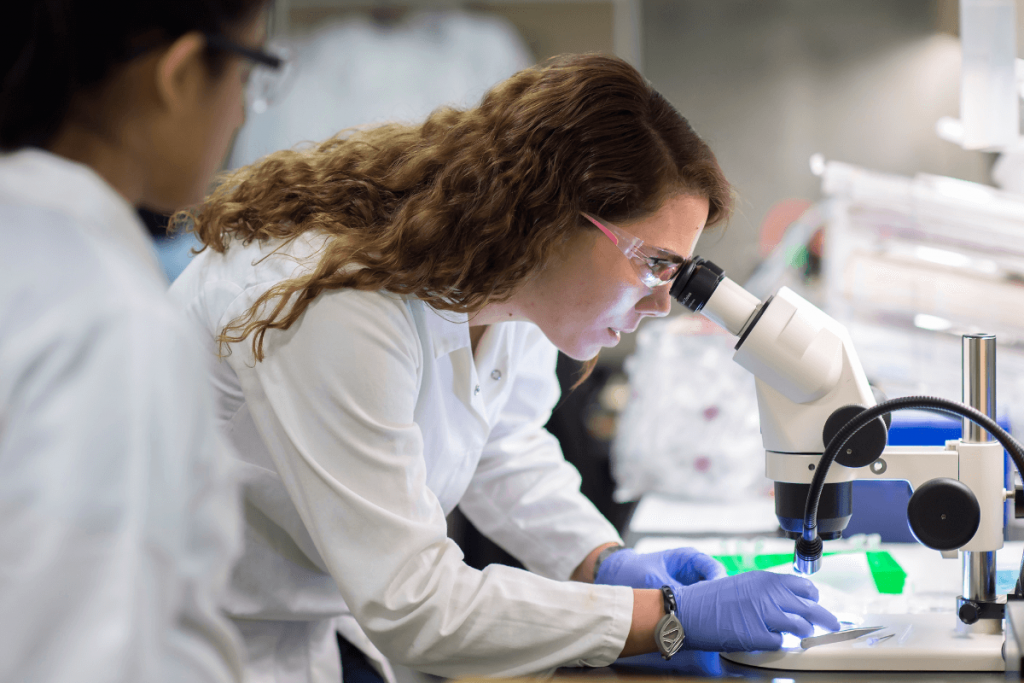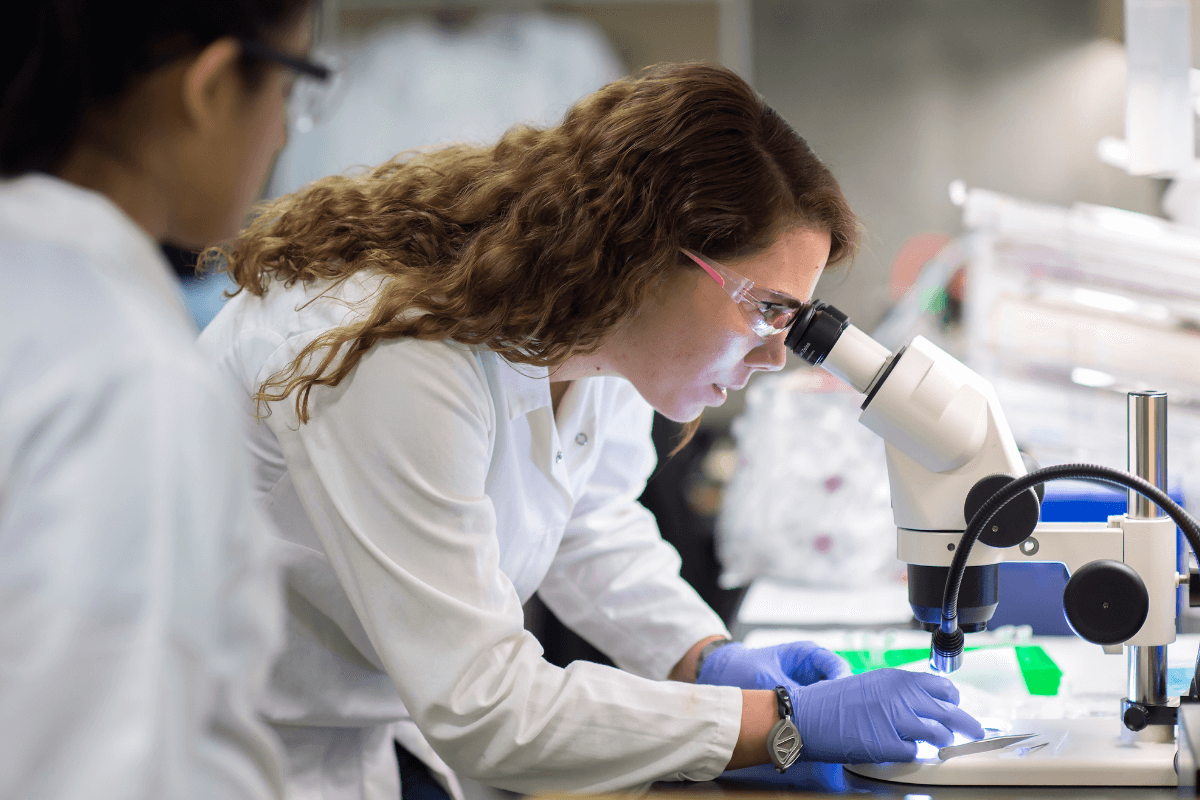
From designing new ways to treat childhood cancers to developing faster tests for COVID-19, the UC Irvine School of Pharmacy & Pharmaceutical Sciences faculty are impacting our communities on a local and global scale.
In fiscal 2020-21, the UCI School of Pharmacy & Pharmaceutical Sciences received $8 million in grants and contracts, representing an 8.1-percent increase from the previous year.
“Our faculty continue to excel in their research and the numerous grants and contracts are well deserved,” Founding Dean Jan Hirsch said. “Their innovative breakthroughs have come across the entire research continuum, ranging from drug discovery to optimizing medication utilization. I am impressed by their innovation and we look forward to another exciting year of research.”
Of the $8 million that went to UCI School of Pharmacy & Pharmaceutical Sciences faculty, $4.1 million of the funding went to industry-sponsored research projects as collaboration between academic and corporate researchers continued to expand.
Within the other $3.9 million, the top three awardees with a publicly-named sponsor included:
National Science Foundation awarded $438,000 to John Chaput
With this award, the NSF Chemistry of Life Processes program in the Chemistry Division and the Genetic Mechanisms program in the Division of Molecular and Cellular Biosciences are funding Chaput to apply time-resolved X-ray crystallography methods to capture snapshot images as the DNA polymerase enzyme copies one strand of DNA onto another. DNA is the blueprint that directs the molecular basis of life on our planet. However, despite decades of research, there remains an incomplete understanding of how enzymes make new copies of DNA inside cells. The collection of images is assembled to produce the equivalent of an animated movie showing the precise order of each step in the reaction pathway at the atomic level.
The detailed insights into the chemical mechanism of these enzymes leads potentially to the design of new polymerases for applications in biotechnology. In addition, this project includes a significant educational component that is designed to attract and maintain student interest in the chemical and biological sciences. This includes pro-active engagement in a number of university-sponsored programs, including the Minority Science Program, aimed at improving the participation of traditionally underrepresented groups in science.
National Cancer Institute awarded $408,942 to Claudia Benavente
Clinical management and outcomes for osteosarcoma, the most common primary cancer of bone, have seen little improvement over the past 35 years. As with most cancers, survival is significantly reduced in patients with metastatic disease and approximately 40 percent of children suffering from osteosarcoma die from metastatic progression. Thus, there is a pressing clinical need to determine the factors responsible for metastasis in osteosarcoma in order to facilitate the development of new therapeutic strategies. Genetic alterations at the RB1 gene have been associated with increased mortality, metastasis and poor response to chemotherapy in osteosarcoma. However, the precise mechanism through which this occurs remains to be elucidated and is the focus of this project.
Benavente and her research team identified UHRF1 as a protein produced in high levels in osteosarcoma in the absence of RB1. Their research indicates that targeting UHRF1 overexpression dramatically increases survival in mice bearing osteosarcoma tumors and reduces the rate and number of metastases. Thus, this project aims to increase their understanding of the role of UHRF1 in tumor formation, progression, and metastasis and further investigate its potential as therapeutic target for anti-cancer treatment. Given that UHRF1 is overexpressed in multiple cancers, this research proposal has the potential to impact human health beyond osteosarcoma.
National Institutes of Health awarded $343,481 to David Mobley
Pharmaceutical drug discovery produces dramatic public health benefits through new and improved treatments for common diseases and disorders, but it is an expensive, time-consuming process involving much trial and error, and failure is common. This work focuses on dramatically improving computer tools to predict interactions between small molecules and molecular machines, and applies these tools to an anti-cancer drug discovery project. The project aims to produce and improve tools which will guide development of new drugs, and will directly use these to assist in anti-cancer drug discovery; both the tools and the proposed application provide potential public health rewards.
The long-term work of Mobley and his research team aims to produce a workflow where a chemist developing new molecules to bind a particular target could input hundreds of potential compounds to synthesize next into a computer before leaving work one day, and return to work the following morning to find these compounds automatically prioritized based on predicted target affinity, selectivity, solubility and other properties, allowing years’ worth of synthesis and assays to be bypassed. Mobley and the researchers develop, test and apply technologies to help make this workflow possible, building on our extensive previous success in physical modeling for binding prediction.
—
For UCI overall, the university also set a record for most research funding in campus history: $592 million in grants and contracts.
If you want to learn more about supporting this or other activities at UCI, please visit the Brilliant Future website. Publicly launched on Oct. 4, 2019, the Brilliant Future campaign aims to raise awareness and support for UCI. By engaging 75,000 alumni and garnering $2 billion in philanthropic investment, UCI seeks to reach new heights of excellence in student success, health and wellness, research and more. Learn more by visiting: https://brilliantfuture.uci.edu/areas-to-support.
